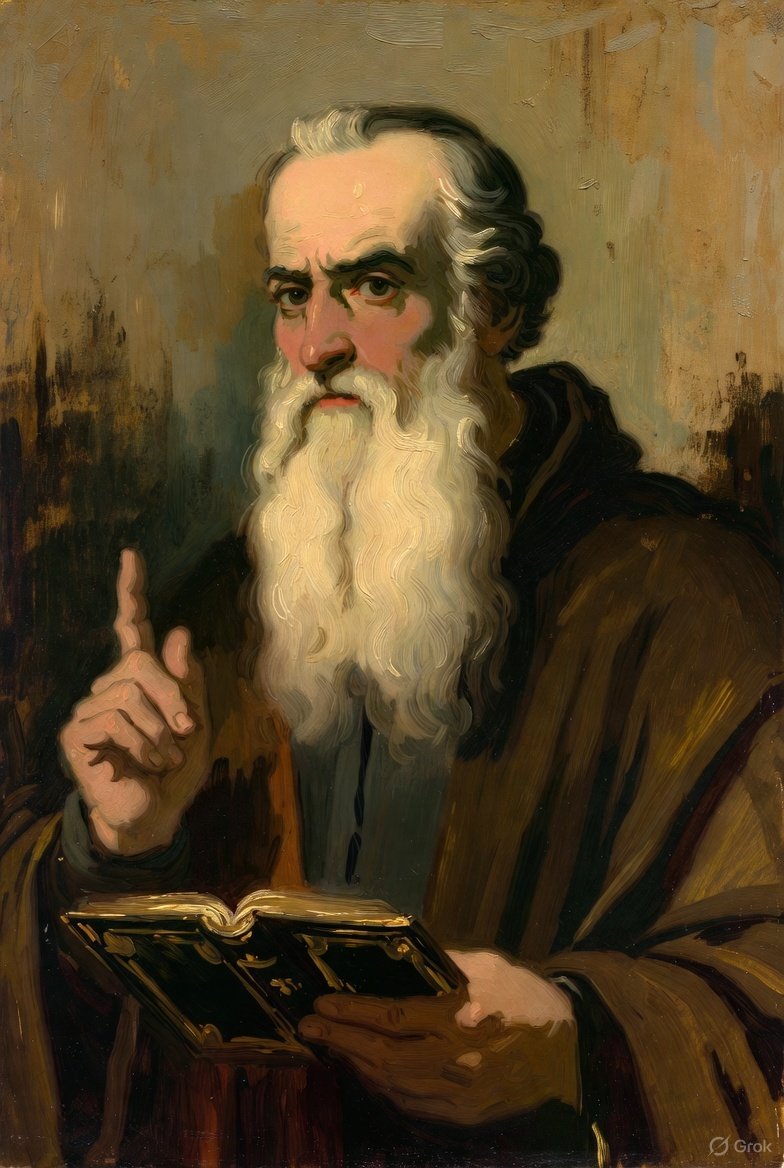Evil Is Real, and It Is Nothing
Evil Is Real, and It Is Nothing: A Biblical-Augustinian Fusion Against Humanistic Distortion
Scripture Does Not Speak Softly About Evil
The Bible never treats evil as illusion, metaphor, or mere perspective. From the opening chapters of Genesis, evil stands as a concrete, objective force that corrupts and destroys. “The Lord saw how great the wickedness of the human race had become on the earth, and that every inclination of the thoughts of the human heart was only evil all the time” (Genesis 6:5). This is not hyperbole; it is divine diagnosis.
The Allure of Privation
Human Goodness, Corruption, and the Prideful Quest for Divine Recognition
In an era dominated by psychological self-help and therapeutic culture, the privation theory of evil offers a profoundly appealing but flawed vision of humanity.
When “Just Be Better” Isn’t Enough
A Reflection on Evil, Privation, and the Cry of the Cross
Jesus’ words from the cross cut through every tidy explanation of suffering. They are not the complaint of a man who made poor choices. They are the anguished cry of the sinless Son of God, nailed to wood by the collective evil of humanity, abandoned in a way none of us will ever fully grasp.
Job 38 and Pastoral Counseling
When Privation Meets Pain: Rethinking Evil Through the Voice from the Whirlwind
When Job finally hears from God, it is not the answer he expected. After chapters of lament, accusation, and theological debate, God speaks—not with a tidy explanation, but with a whirlwind. In Job 38, the Lord answers Job out of the storm, asking, “Where were you when I laid the foundation of the earth?” This divine response is not evasive; it is expansive.
Jesus Explains The Existence of Good and Evil
Matthew 13:24-30 The Wheat and the Weeds. Jesus tells a parable about how good coexists with evil and describes His plan for resolution.
The Shortcomings of Augustine’s Theory of Evil as Privation: Philosophical and Biblical Insufficiencies
Augustine maintained that all creation is inherently good (omnia bona) because it proceeds from a perfectly good Creator (Confessions VII.12; City of God XI.21). Evil, therefore, has no ontological status; it is a defect, like blindness in an eye or rust on iron.
The Influence of Dualism on Augustine’s Understanding of the Problem of Evil
Although Augustine ultimately rejected Manichaean dualism, its influence lingered in his language, psychology, and metaphysics for years. This essay traces that influence across his career, showing how he gradually replaced a cosmic conflict of substances with a Christian doctrine of evil as privatio boni (privation of good), original sin, and divine grace. The analysis draws on Augustine’s own reflections in his Retractationes (Reconsiderations), where he critiques and corrects his earlier statements.
The Evolution of Augustine’s Theodicy
From the Intimate Struggles of Confessions to the Cosmic Drama of The City of God
Augustine of Hippo (354–430 CE) wrestled with the problem of evil more persistently and profoundly than many thinkers in the Christian tradition. His theodicy, the effort to reconcile evil’s existence with God’s goodness and omnipotence, did not emerge fully formed but developed across decades of intellectual, spiritual, and personal upheaval.
Seeing Life’s Difficulties from Jesus’ Perspective.
Next, we see God’s provision and avenue of rescue from the suffering and brokenness of this world. God tells Moses to construct the bronze serpent and gives instruction to trust as the avenue out of their current state. The application is striking…
Tragedy Is Not God Punishing You. The Bible Explains Why.
A point of application is we see the difference between complaining to God and complaining about God. Scripture is loaded with instances when believers complain to God about circumstances. Indeed, entire books of the Old Testament are dedicated to the exploration of tough questions related to God's sovereignty in the valleys of life.
Seeing Life’s Difficulties From Jesus’ Perspective
Jesus continues by helping us to see His role in our redemption is not condemnation, rather the inference is that our fallen nature already accomplishes this…
Understanding God and Evil in the Bible
If there is a negative force that is causing bad things to happen, and this results in a void, or shadow over what is right in God’s good creation then we are saying God’s sovereignty is voluntarily limited and truncated by events that do not go as He planned.












